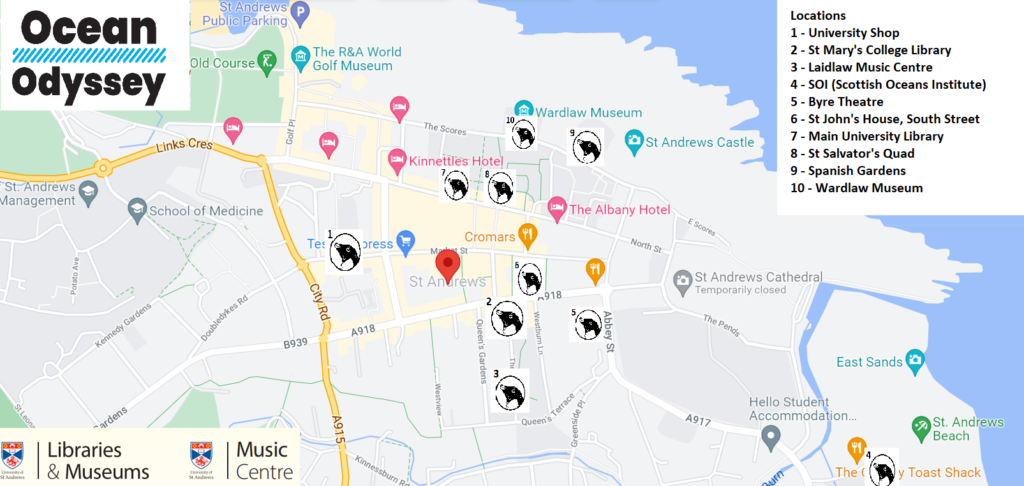Deep Seabed Mining Stop
Main University Library
Cetacea (excerpt)
Throughout Lockdown, musicians Katherine Wren (viola) and Alex South (clarinets, electronics) have been working together alongside poet Lesley Harrison, exploring the intersection of their interests in animal song and the music and cultures of the North Atlantic. The improvisation recorded for CETACEA was inspired by lines from a poem by Lesley, which in turn was a response to an exhibition by artist Marina Rees centred on the bones of a pilot whale. These large delphinids are a deep-diving species living in matrilineal societies and making use of complex vocalizations. View in full at: https://vimeo.com/481683771/7909542ed3
The ocean is very deep and goes down for miles and miles. We can only reach some depths. Humans are now mining minerals and metals from the seabed, which is threatening the ocean. Noise from the machines mining effects animals and plants. It can also harm the seabed environment and habitats, and directly harm the plants and animals. We do not know enough about the long-lasting effects of deep seabed mining and it may have other impacts too.
Word Puzzle
To complete the trail and claim your free prize* at our final stop at the Wardlaw Museum, please take the first letter of mining, turn it upside down to have a new letter, and add to your collection of letters.
Once you have all 10 letters, please rearrange them to spell an ocean-based word which will give you your prize.
*One prize per household
Continue the trail and find the next stop:

Find out more information about the locations of the stops at https://divein.wp.st-andrews.ac.uk/ocean-odyssey/
(or click on Ocean Odyssey through the menu)